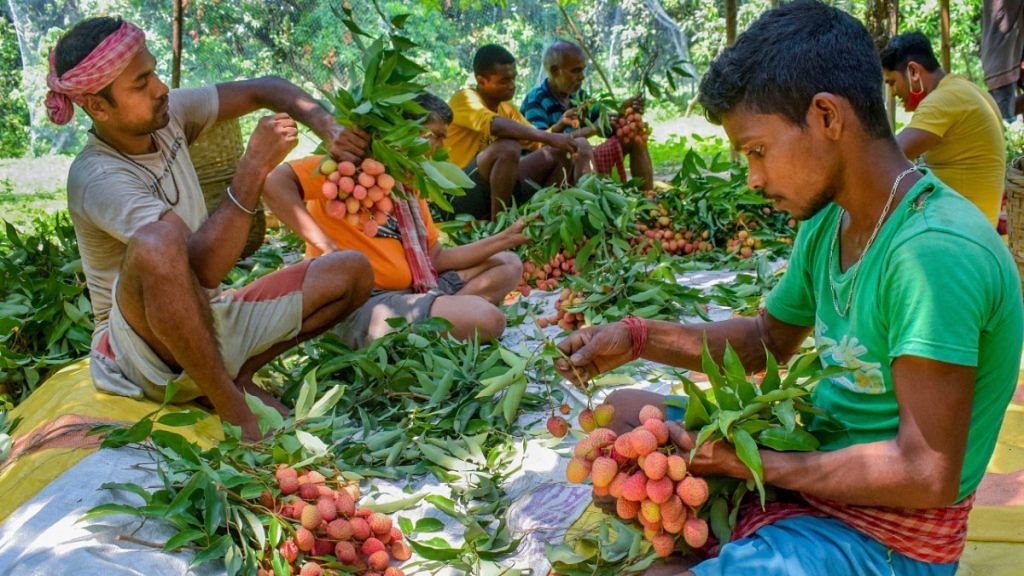New Delhi: The Narendra Modi government announced major reforms in the agriculture sector, including freeing farmers from the mandi monopoly, as it continued to unveil the contours of its Rs 20 lakh crore-lockdown relief package.
At a press conference Friday, the third in a series announcing the Centre’s relief package, Finance Minister Nirmala Sitharaman said the government will amend the Essential Commodities Act to exclude cereals, edible oils, oil seeds, pulses, onions and potato.
The government, she added, will also bring in a central law that will allow farmers to directly sell their produce to buyers of their choice, and even undertake inter-state trade.
Earlier, farmers had been restricted to selling their produce only to traders with a mandi licence under the Agricultural Produce Market Committee Act.
Also read: Jobs, free grains without ration card — Modi govt seeks to ease lockdown hit for migrants
Agri economy
Agriculture contributes 15 per cent to India’s gross domestic product (GDP), and as the Indian economy grows, this number will come down further. Other sectors are naturally bound to grow faster than agriculture. So why bother with it?
Though farmers represent a fraction of India’s GDP, they make up 60 per cent of the country’s population, which makes them a significant voter base for politicians.
Until now, farmers were forced to sell their products to their local mandi (market), but the government’s latest changes mean they can now sell to anyone. Also, amending the Essential Commodities Act will empower traders, which will further empower the farmer. Until now, traders were afraid of landing in prison under the Essential Commodities Act of charges of hoarding.
These acts were made when there were shortages in the country, but now India produces a surplus. India strangles itself by its shortage mindset.
Watch the full episode here:
Also read: Over 80% of households in India lost income due to lockdown, says study
